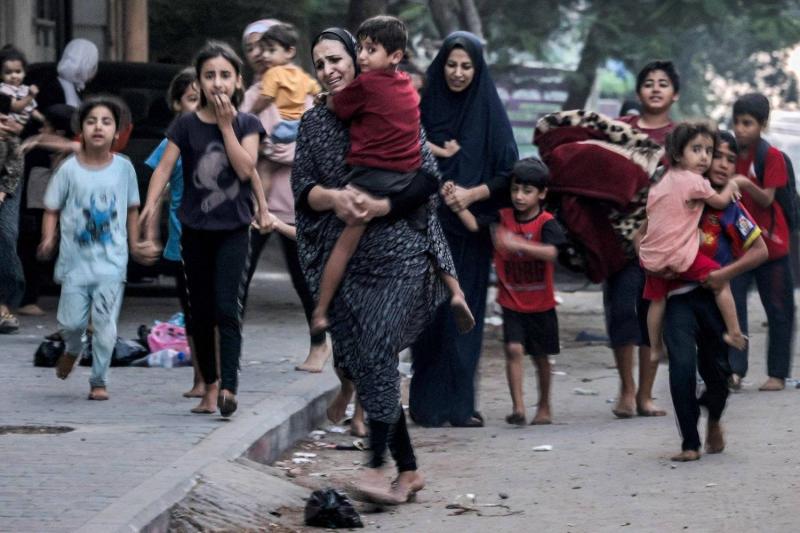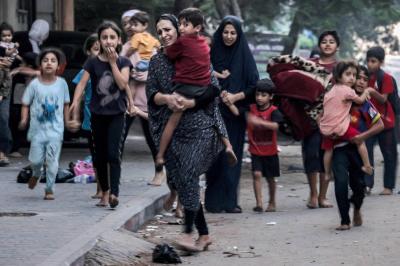Families in the Gaza Strip packed their belongings and fled today, Tuesday, towards the south to a patch of land already overcrowded with displaced people lacking sufficient food, water, or toilets, fearing death from Israeli bombardment. Some are fleeing for the third or fourth time in less than two months. Most of the 2.3 million residents of Gaza have been left homeless due to the war between Israel and Hamas. The new wave of displacement following the end of a week-long truce on December 1 has worsened an already catastrophic humanitarian situation.
In Khan Younis, in southern Gaza, where Israel launched a long-anticipated attack, Palestinians seeking shelter from airstrikes set up tents in the grounds of Nasser Hospital. They were dismantling their tents and loading piles of mats and blankets onto cars or donkey-drawn carts. Abu Omar, a middle-aged man who had left his home in the eastern part of the city and taken refuge at the hospital with his family, said, "We are preparing to leave Khan Younis heading to Rafah. We have been here for about 50 days."
Rafah, located to the south on the border with Egypt, is one of the last remaining areas that the Israeli army said civilians could go to escape the fighting, despite being subjected to numerous airstrikes. Abu Omar, standing beside a car loaded with belongings on its roof, said, "There is no safe place... but in the end, we are heading to where we think there may be a little safety." However, the displaced in Rafah say their living conditions are dire.
Inas Mselh, sitting with her children in a shelter made of wooden boards and transparent plastic sheets, said, "There are no toilets. We can't even perform ablution if we want to pray. There is no place to wash. If we want to wash our children's hands, there is no place for that. There isn’t even a place where we can make or get bread." She added, with tears streaming down her face, "We spend the whole night listening to missiles and bombardment. We live between life and death. We could die at any moment."
Khan Younis was home to 381,000 people before the war. A spokesman for the United Nations said that 245,000 others displaced due to Israeli bombing in northern Gaza had sought refuge in Khan Younis at 71 different sites. The Israeli army urged residents to evacuate three specific areas in Rafah. These areas are already overcrowded with about 280,000 residents and 470,000 displaced persons who arrived after the war began on October 7. The UN spokesman noted, "This relocation order will effectively raise the number of people in Rafah to 1.35 million, driving an additional 600,000 people from Khan Younis into an area that currently has a population of 750,000, where the capacity of the UN and its partners to provide assistance is already facing serious challenges."




